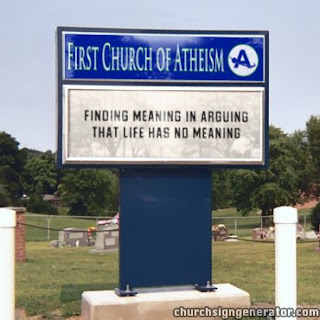Beyond God Arguments: Toward Belief Without Message Boards
I woke up this morning thinking about this. I mean in that state where one is dropping out of a dream, this idea was already running in my head, like a word document you get to exist before you go to bed. I guess it's "heavy on my heart" as they say. It was a fully hatched idea as I did my morning "business." But by the time I got the coffee brewed I had already forgotten it. The time between dawn and now, which is 6:29 has been an attempt to salvage the fragments I remember. I have thought of all of these things before. There's really nothing new here for me, but it somehow seems more fresh and its impressed upon my mind. I guess the place to start is with the impossibility of proving the existence of God. This is a premise I have long since accepted, since my usual tactic is to argue for "rational warrant." I'm not sure that this is even a meaningful phrase, much less a possibility. I think the urge to produce a heuristic structure capable of...
